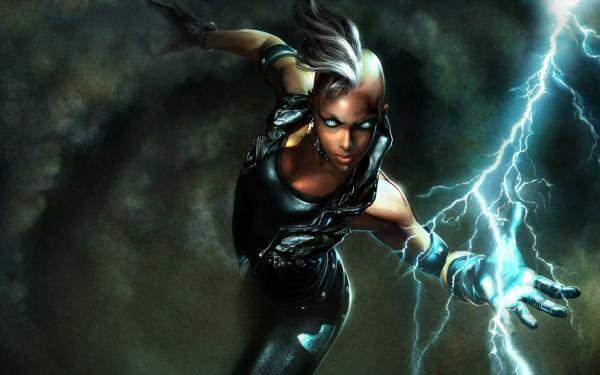Most of the uproar over two gay members of the X-Men getting married seems to have originated from One Million Moms.
The conservative “organization” also opposed a gay character in Archie, but the controversy only served to increased sales of the comic.

Several days later, an alternate incarnation of The Green Lantern was introduced by DC comics.
Interesting enough, right as this silly controversy started swirling, several publications took a look back at The Black Panther and Luke Cage, two African American superheros who helped the comic world back in the days of the civil rights movement. I do recall Luke Cage, but didn’t know about the Black Panther until this story appeared.
The Black Panther was first introduced in The Fantastic Four, and as crime novelist Gary Phillips told the L.A. Times, The Black Panther character hit shelves 1966, before there was The Black Panther Party.
The Panther was created by Stan Lee and Jack Kirby, and he hailed from the African kingdom of Wakanda, and actually outsmarted and temporarily defeated The Fantastic Four. But as Phillips explained, it was all a ruse, “as the Panther meant them no harm and was demonstrating his abilities for them as a tuneup to his real battle with his arch-enemy, Ulyssess Klaw, the Master of Sound.”
The Black Panther also had his own comic series, and married Storm from the X-Men, who is also an African native. Then in 1969, there was another black superhero, the Falcon, and he was Captain America’s partner. Luke Cage, Hero For Hire came along in 1972. As Phillips continues, “More than any other black superhero that came along then, the lineage of Luke Cage can be traced to the zeitgist of blaxploiation flick such as Shaft.”
These characters didn’t last long, and just as Phillips mentioned there are Luke Cage and Black Panther films in the works, the news also popped up that the Black Panther movie is now back up and running. Cinema Blend confirms word on the Hollywood street is “the next big Marvel superhero to get his own movie will be the Black Panther.” Meanwhile, Blend also would love to see Djimon Hounsou play him, and Hounsou also did the voice of the Black Panther on the BET cartoon series.
When they said Superman fought for “truth, justice and the American way,” it’s supposed to mean people of all races, colors, creeds, and sexual orientations. If today’s comics and superhero movies are trying to teach the young and impressionable that people of all walks of life should be protected, and it’s okay to be different, it’s a positive message even a “million moms” can’t stop.






